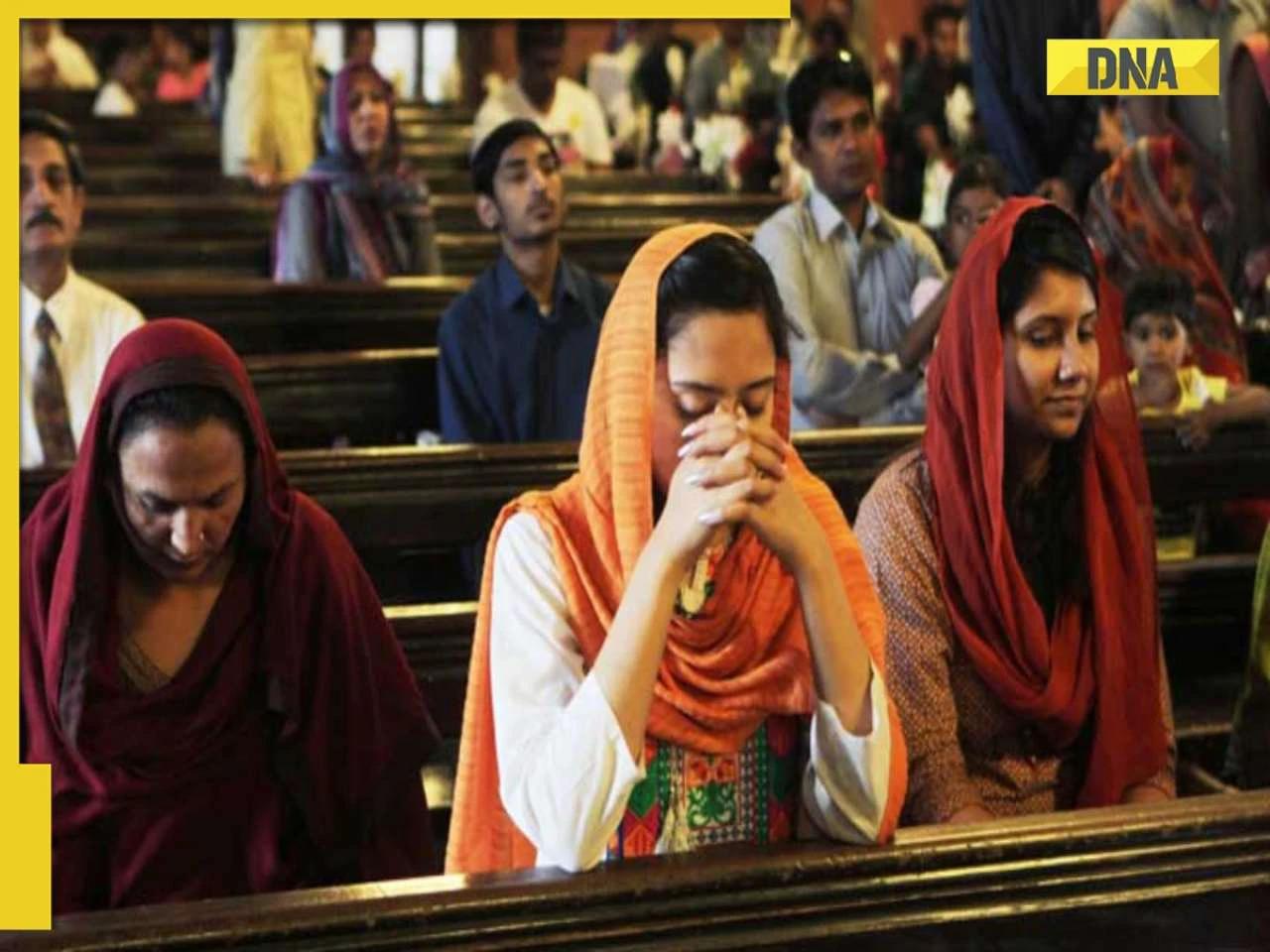In what may be called one more incident of targeting minorities using Pakistan’s ubiquitous anti-blasphemy law, a Christian man was arrested in Punjab province.
Confirming the incident, taking place in Lahore’s Nishant Colony, police officer Zulifqar Ali, told PTI that Amir Masih was arrested on the complaint of a Muslim neighbour, Sanoor Ali. He said, “Ali told police that his neighbour Masih came to his grocery shop and started talking about leaving Pakistan because of poor economic conditions. Then he suddenly passed derogatory remarks against the Prophet. I tried to overpower him, but he managed to flee.”
Christian body: Fabricated case
However, it took a different twist when Napoleon Qayyum of a Christian legal organisation claimed that it was a fabricated case as the complainant wanted to settle a score with the suspect over a petty matter. He said, “The shopkeeper and the suspect, who is a father of two, have been living on the same street for many years, and they exchanged harsh words over the rainwater drainage issue last Friday. Shopkeeper Ali alleged that the suspect drained water from his house into the street, which flowed into his shop. Later, he got a blasphemy case registered against Amir Masih.”
The Lahore Police arrested Masih and booked him under section 295 C of the Pakistan Penal Code, which deals with the offence of defiling the name of the Prophet. The punishment for this offence is either death or imprisonment for life, along with a fine. Anyone deemed to have insulted Islam or Islamic figures can face the death penalty in Pakistan.
What is Anti-blasphemy Law
Anti-blasphemy Law existed in Pakistan before the country came into existence. It was codified in certain parts of what is now Pakistan in 1860. Amendments were made in 1927 to add many things to it. Pakistan continued it after the partition of India in 1947 and kept on adding many new items. When Pakistan was under the military regime of General Zia-ul-Haque, who wooed the radical Islamic forces to bolster his rule during the 1980s, he made it more stringent. Ahmedias were declared to be non-Muslim in 1973. However, they were asked not to practice their religion in 1984.
The anti-blasphemy law took shape in stages and became more draconian with every step. In an amendment adopted in 1980, it was said that anyone insulting an Islamic figure can be given a punishment of three years in jail. In 1982, it was said that a man insulting the holy Quran can be awarded a maximum punishment of life imprisonment if he insults the holy book. In 1986, an amendment was made to punish with the death penalty if a man insults Prophet Muhammad.
Asia Bibi case
The Asia Bibi case rocked Pakistan in 2009 when she was accused of insulting the Prophet. She was awarded a death sentence in 2010. After that, Punjab Governor Salman Taseer tried to bring an amendment to dilute the anti-blasphemy law; he was assassinated by his security guard in 2011. When the assassin was hanged in 2016, he became a national hero, and more than a million Pakistanis attended his funeral. Asia was pardoned.
In the Indian state of Punjab, a similar situation is emerging where insulting Guru Granth Sahib may attract violence or even death. The state government has recently approved a law giving life imprisonment for anyone insulting the holy book of any religion.
